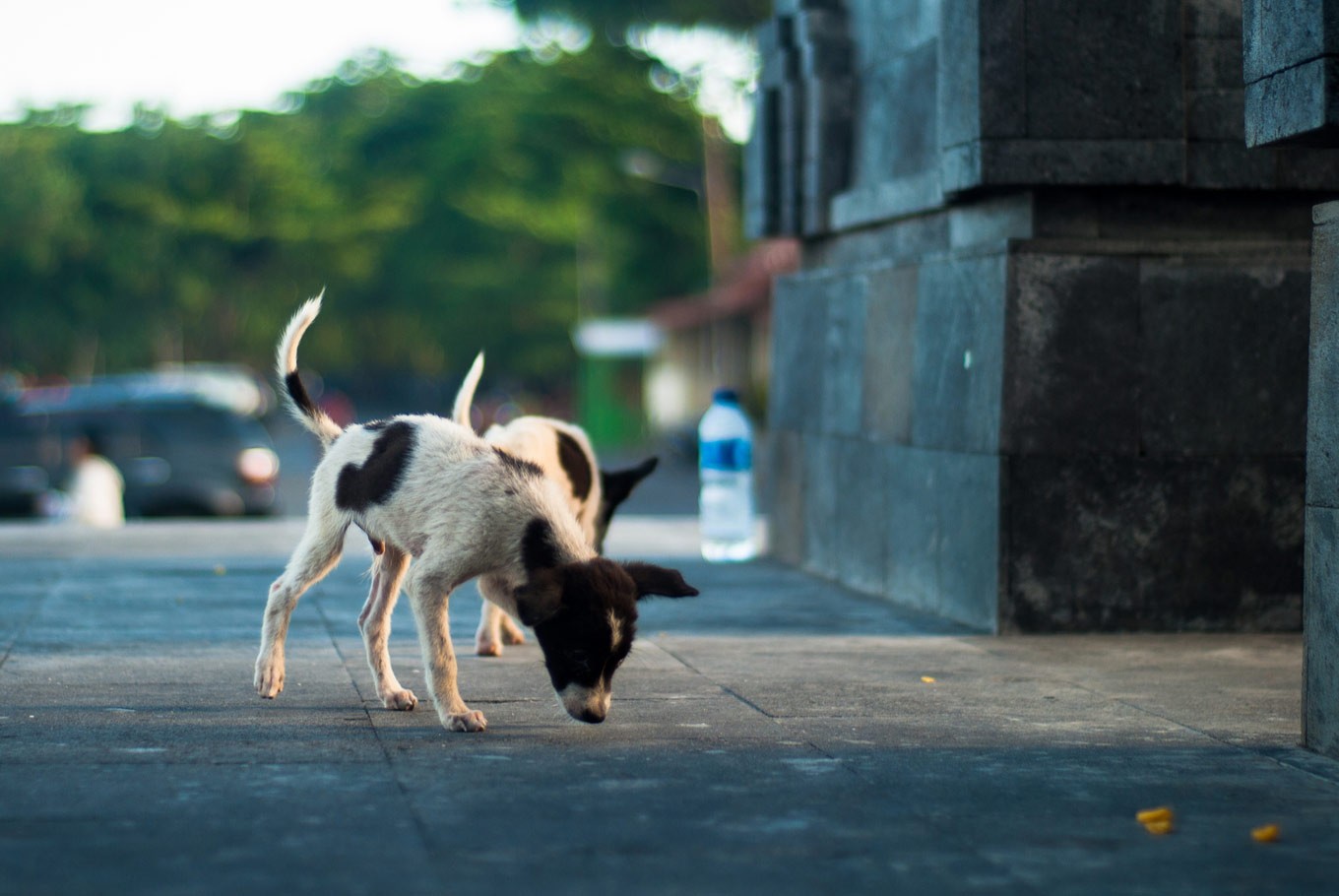Popular Reads
Top Results
Can't find what you're looking for?
View all search resultsPopular Reads
Top Results
Can't find what you're looking for?
View all search resultsPandemic leaves animals abandoned, starving in Bali, West Nusa Tenggara
“In many instances, animals who brought in an income for their owners are now rendered ‘worthless’, as the global tourism industry comes to a standstill. Bali and the Gili Islands have been especially impacted by this, given the huge reliance of their economies on tourism,” Animals Australia spokesperson Louise Bonomi said in a statement on Wednesday.
Change text size
Gift Premium Articles
to Anyone
A
n animal protection organization, Animals Australia, has reported that the COVID-19 pandemic has put animals in a dire situation, with many of them left starving and abandoned on the streets in Indonesia, especially in Bali and on the Gili Islands of West Nusa Tenggara.
“In many instances, animals who brought in an income for their owners are now rendered ‘worthless’, as the global tourism industry comes to a standstill. Bali and the Gili Islands have been especially impacted by this, given the huge reliance of their economies on tourism,” Animals Australia spokesperson Louise Bonomi said in a statement on Wednesday.
“As we saw borders closing rapidly and international travel grind to a halt, it was very clear to us that the situation for animals would deteriorate rapidly, especially for captive and working animals whose care and upkeep is dependent on tourist income,” added Bonomi.
Read also: COVID-19 spoils appetite for wild meat
The organization announced that it had provided critical support grants to 35 animal protection groups around the world, including in Bali, Jakarta, Lombok and the Gili Islands, under a program called the Global Emergency Grants.
The organization works together with the Jakarta Animal Aid Network (JAAN) to improve the welfare of domestic animals, wildlife and marine life in various parts of Indonesia through the relocation of animals at risk, especially monkeys and dolphins.
As many as 150 stray dogs in Lombok have been fed by a local NGO, Street Dog Support, which provides dog shelters in the region. In Gili, Animals Australia cooperates with local NGO Gili Eco Trust to assist local groups on the islands in providing carriage owners with food and veterinary care for horses, as well as food for local cats and birds that are kept as pets on the islands.
The Australian-led effort has granted free emergency care to vulnerable animals at Udayana University Veterinary Hospital and assisted the Villa Kitty animal rescue foundation with street feeding, rescue, shelter administration and veterinary care for nearly 300 cats and kittens in Bali. It also funds the legal advocacy and anti-cruelty work of the Bali Animal Defenders (BAD).
“We have also found dogs that were most likely abandoned by their owners and left in public places such as beaches and vacant land. This has created new problems in Bali, especially as rabies is endemic to the island,” said veterinarian Sasa Vernandes, Animals International’s Indonesian team leader.
Read also: Slaughtering zoo animals to feed other animals ‘last resort’ in hunger crisis
The impact of the COVID-19 pandemic on Bali, home to some 4.2 million people, is believed to be worse than that of past disasters, including the deadly 2002 and 2005 Bali bombings. The island’s foreign tourist arrivals fell to nearly zero just weeks after Indonesia reported its first COVID-19 cases.
“This affects the stability of the rescuers and stray animal feeders to carry out their activities because most of them have lost their jobs, but the animals are still very dependent on them to survive,” said Vernandes.
“Therefore, the emergency funding program really brings a good impact at this very difficult time. The funding is giving new hope to the rescuers and animal feeders to continue their beautiful activities in helping the animals in Bali.”










